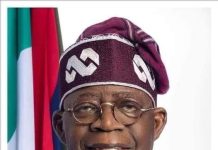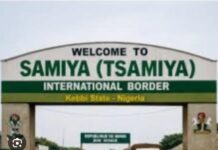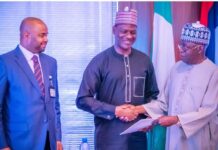
On Nollywood
“Much of what I am reading still fail to engage Nollywood in the way that Nollywood should be engaged, because it does not deal with the society that is producing Nollywood. The two need to be looked as connected — Nollywood as the product of our society. And you need to look at that society to see how it is either engendering, encouraging, or distorting what can be produced… Nollywood films are as underdeveloped as Nigerian society, and when you watch them, you see all the forms of underdevelopment, both technically and socially. If you really want to know what is going wrong with Africa, Nollywood shows it”
On Nigeria’s Contemporary Democracy
“We elect governments without a programme of action. The strategies for ensuring that a policy is implemented are never made known to either members of the political parties or to the general populace.
In my view, under the APC, we have a different kind of situation where it is the President that has abandoned his party. In both cases (PDP and APC) we had Presidents governing without serious political parties”
On Political Restructuring
“A country without the structure to take proper decisions cannot plan. When they can’t plan, it means the daily run of events push them like the wind blowing paper. It is as if that kind of situation puts all of us in auto-pilot. Things are happening, but you cannot specifically pinpoint who is in control”
On The Need To Democratise Education
“Somehow if there was no free education, I probably would never have gone very far but that free education was the most well-organised education I ever had. The greatest problem today is that every child who ought to be in school is not in school. If Nigeria is a serious country, everybody under 40 who is not educated ought to be made to go back to school one way or the other so that before they are 45 years old, they will be properly educated. And therefore, when I compare the man who brought education to the Western Region to all the leaders across Nigeria, I consider the others as unserious people”
On Chief Obafemi Awolowo
“I have followed Chief Awolowo’s career very closely. In my view, he provides the finest example of how to solve Nigeria’s problem. A man who was so much lied against but never for once behaved in a manner that showed he was worried for himself. He was always more worried for others”
On The Crisis Of Herdsmen
“If we don’t deal with the issue of herdsmen, there may be no Nigeria tomorrow…Almost all Nigerian groups are brought up not to take Nigeria seriously; they fight against themselves and the future of their children by feigning to be fighting for the interest of their people… The Fulani must be made to move to where they have cultural empathy – dairy industries, corn-beef industries.
..Government must build a global industry around their cattle-rearing”
On Nigerian Civil War And Necessary Lessons
“The war has not changed anything; and subsequent wars will still not change anything….In my view a civil war comes to an end when the falsehood that divided the people and the stereotypes that ruin people have been displaced by a harsher verdict”
On Ethnicism In Nigeria Press
“In narrating the history of missionary journalism in Nigeria, you cannot help but look at the tie of literacy to ethnicity. The matter of ethnic origins, however, misleads. It makes us forget that the fiercest battles in Lagos journalism were between Herbert Maculay and other Yorubas and between Nnamdi Azikiwe and a fellow non-Yoruba like Ernest Ikoli”
On Chinua Achebe
“Achebe has been one of the luckiest writers in Africa . We loved him so much for what he wrote that we hardly ever challenged some of the most contentious positions in his novels and in his non-fiction writings. Achebe said many things that are thoroughly wrong and that we ought to have contested very sharply and strongly. He is too important to be allowed to think badly and there are so many areas in which Achebe thought badly that we all should have contested before now. But the worshipful approach to him enabled us to raise to the level of a philosophy many things we should have dismissed as trite”
On Dictator Sani Abacha And Ken Saro-Wiwa
“But you know Ken was crazy. Ken drove me out of his office the day Abacha came to power. He said Abacha was a good man and that was the man who killed him”
On Lagos
“There is a headiness the average Lagosian has — you do not really feel that the big man, no matter how big he is, is your boss, the man you call “Oga.” And he, the man you call “Oga,” knows that you do not really regard him as your master. “Oga” does mean master, but the average Lagosian who calls you “Oga” is just doing it to silly you. Those who take him seriously are fools”
On Nigeria’s Story
“I believe we know Nigeria’s story. What we have not decided on is how to make Nigeria live for each and of us. It is not only the fighting wars. This is an eminently safable country that can also save Africa. And we have the means to safe Nigeria; we only need to employ it. The differences we talk about are really no differences. I want to live in a county with only one song, one creed, only one dance. Let us build Nigeria The Beautiful. It is a duty we owe ourselves to build Nigeria The Beautiful and unite the world”
On Bola Ige And Afenifere
If I am asked today to look at where Ige’s problems as a political leader began, I will go back to that period when he transited from being a critic of political leaders to being one of them. There were people who never forgave him for having criticised the party leaders and a certain prejudice against him always followed many of his activities. He was a very eloquent speaker and interesting writer, but many people thought that he was arrogant, which is actually not true”
On Nigeria’s Constitution
“Generally, they failed, and are still failing, to look at how the oddities of the 1999 Constitution have been obstructing reforms and reformers, deleting development, empowering corruption, and making Nigeria look truly big for nothing. The surprise is that anyone could think of a law-governed change in the country without attending to the business of having a constitution that truly works”





